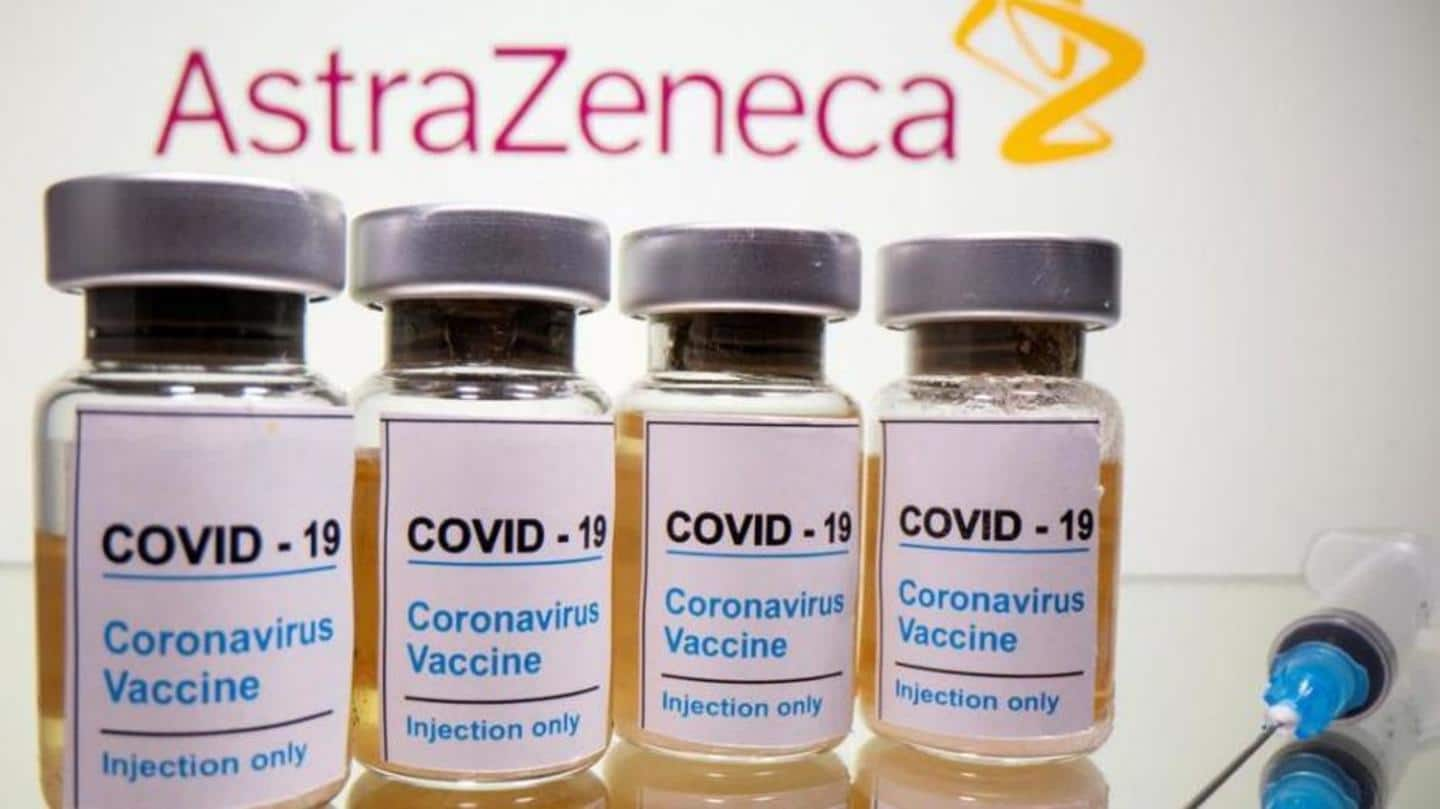
WHO authorizes AstraZeneca's COVID-19 vaccine for emergency use
What's the story
The World Health Organization has granted an emergency authorization to AstraZeneca's coronavirus vaccine, a move that should allow the UN agency's partners to ship millions of doses to countries as part of a UN-backed program to tame the pandemic.
In a statement on Monday, the WHO said it was clearing the AstraZeneca vaccines made by the Serum Institute of India and South Korea's AstraZeneca-SKBio.
Vaccines
AstraZeneca is the second vaccine to be approved by WHO
The WHO's green light for the AstraZeneca vaccine is only the second one the UN health agency has issued after authorizing the Pfizer-BioNTech vaccine in December.
Monday's announcement should trigger the delivery of hundreds of millions of doses to countries that have signed up for the UN-backed COVAX effort, which aims to deliver vaccines to the world's most vulnerable people.
Quote
Good news for countries with no access to vaccines
"Countries with no access to vaccines to date will finally be able to start vaccinating their health workers and populations at risk," said Dr. Mariangela Simao, the WHO's Assistant-Director General for Access to Medicines and Health Products.
Details
Why are most countries choosing AstraZeneca over Pfizer-BioNTech?
The AstraZeneca vaccine has already been authorized in more than 50 countries, including Britain, India, Argentina, and Mexico.
A major reason behind AstraZeneca finding favor over Pfizer-BioNTech is that it is cheaper and easier to handle. Pfizer needs deep-cold storage that is not widespread in many developing nations. However, both vaccines require two shots per person, given weeks apart.
Information
Not enough vaccines as nations race to beat the virus
The coronavirus has infected more than 109 million people and killed at least 2.4 million of them. But many countries have not yet started vaccination programs and even rich nations are facing shortages of vaccine doses as manufacturers struggle to ramp up production.
Recommendations
Mixed recommendations over use of AstraZeneca
Last week, WHO vaccine experts recommended the use of the AstraZeneca vaccine for people over age 18, including in countries with new COVID-19 variants.
But that was contrary to the African Centers for Disease Control and Prevention recommendation, which said countries that had a virus variant should be cautious in using the AstraZeneca vaccine, suggesting that other shots be prioritized instead.
Details
South Africa has opted for Johnson & Johnson jabs
The AstraZeneca vaccine forms the bulk of COVAX's stockpile and concerns were recently raised after an early study suggested it might not prevent mild and moderate disease caused by the variant first seen in South Africa.
Last week, South Africa scaled back its planned roll-out of the AstraZeneca vaccine, opting instead to use an unlicensed shot from Johnson & Johnson for its healthcare workers.
Information
COVAX has missed the deadline
COVAX has already missed its goal of beginning vaccinations in poor countries at the same time that shots were rolled out in rich countries. Numerous developing countries have rushed in recently to sign their own private deals to buy vaccines, unwilling to wait for COVAX.
COVAX
Who will receive the first vaccine consignments from COVAX?
Meanwhile, WHO and its partners, including the vaccines alliance GAVI, have not said which countries will receive the first doses from COVAX.
But an initial plan showed a handful of rich countries that have signed multiple private vaccine deals, including Canada, South Korea, and New Zealand, are also scheduled to receive early doses from COVAX.
Information
Many believe that COVAX model is flawed
Some public health experts called that very problematic and attributed it to COVAX's flawed design, which allowed donor countries to double-dip by purchasing vaccines from the program while also signing their own commercial deals.
Reaction
No penalties on rich nations in agreement with COVAX
"Canada ordered enough doses to supply their population about five times over and now they're looking to accept their share of doses, which would otherwise be given to poor nations," said Anna Marriott, Health Policy Lead for Oxfam International.
However, WHO Chief Scientist Dr. Soumya Swaminathan earlier said that rich countries that have signed up to receive vaccines are not going to be penalized.
Decision questioned
Rich countries should reconsider decision to take vaccines from COVAX
After pledging more than 400 million to COVAX last year, Canadian Prime Minister Justin Trudeau said it was always his country's intention to get vaccines through COVAX.
Marriott said rich countries planning to take doses from COVAX should reconsider their intentions, given their earlier calls of support for the effort's goal of equal access to vaccines for all the world's nations, rich or poor.